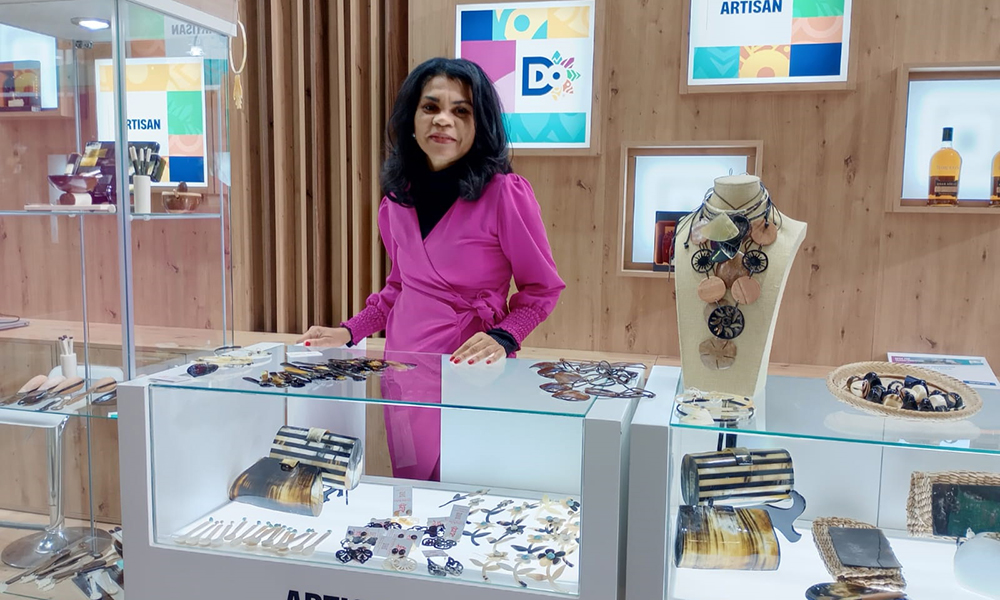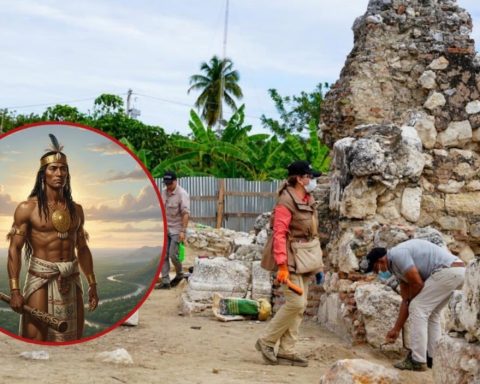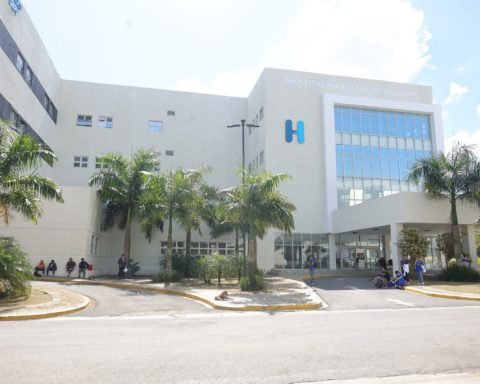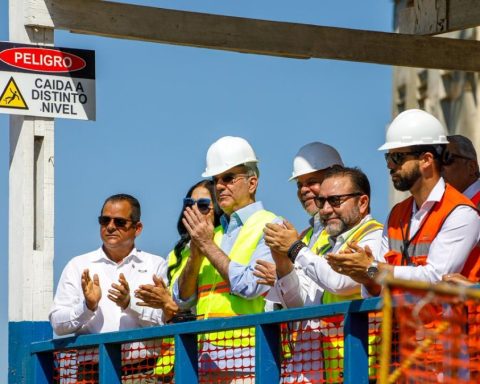She is an entrepreneur who works for important companies and who takes advantage of endemic materials to make fine pieces that are widely accepted.
Cristina Núñez is a mocana who has gone around the world exhibiting her formidable pieces of handicrafts in large tourist fairs. The recently completed ITB, in Berlin, the German capital, is one of them.
He has 30 years working crafts with materials such as cow horn, banana and plantain materials, coconut gourd, resin, amber, larimar and bone. They are fundamentally endemic materials that allow you to make pieces with cultural motifs.
Although the enterprising woman is from Moca, Espaillat province, her workshop is in Santo Domingo, the place where she went to live during her years as a university student. In that city she has made her life, but her essence is cibaeña. She doesn’t hide it.
She makes bracelets, rings, spoons, necklaces and a range of ethnic style pieces. You are able to make as many designs as your customers want. Clients ranging from large firms to others of lesser renown, but all equally important to her.
She is a public accountant by profession and after graduating she met some friends and relatives who had businesses in Europe. “That’s where the interest in coconut buttons arose and they immediately thought of me, who lived in the Dominican Republic where a lot of this fruit is produced,” she tells the newspaper elCaribe, who has taken advantage of her presence at the fair in Germany to talk with her. about your business. “Then came the bone and horn buttons, but those customers discovered that the Chinese made them cheaper and in large quantities and they went after them,” she recalls. However, not everything was negative, because she was left with her experience and knowledge, elements that she later took advantage of throughout her life in regards to these materials.
His first bill was dated February 9, 1995 and from then on he has always walked the path of success. “A success that has allowed your product to be “top” in the Dominican Republic.
“I am a costly home supplier; I work all the Grupo Punta Cana stores, which are fourteen, and in Santo Domingo I work all the top stores from home”, she says, with a trace of satisfaction.
The cost of your parts depends a lot on the materials you have.


outsourcing
“At this point in the game I can make any number of pieces. And I can tell you that what is being talked about now, the round economy and the orange economy, I started a long time ago, without realizing it and without knowing what I was doing, ”he explains.
As the pieces that Cristina makes are very manual, she would have to have a very large staff of artisans to be able to respond to very large orders.
For this reason, in many cases he makes the designs and takes them to other artisans who work abroad. In this way, he fulfills the orders and, in the process, generates jobs for other workshop owners. “It is less expensive for me because I don’t have the workload of all the employees, but that is divided among all the workshops that make the parts. If those who do the work are females, it is much better because they almost always work at home and do not have to leave the children alone, ”he tells this newspaper, while taking the opportunity to show a handbag designed from banana leaf rubble.
In all the fairs that she participates in, which are many, Cristina is well accepted, especially in Europe. “The bulk of tourists we have in the Dominican Republic are European and I have focused a lot on working with them and they like it,” she says.
In his workshop, located in Los Alcarrizos, seven people work. But the lady also does social work in the community. Ideas for her designs usually come overnight.
He says that the Internet is a work and help tool. “You have to have, for example, the dates of the shows in your head… summer, autumn and everything else and then you see what you can adapt to your material, apart from the design schools”, he expresses in the conversation . He can be contacted by phone 809-254-5635 and as @cristinanunez_artesanias.
He studied design in Italy and in Santo Domingo he has taken design courses given by schools. He has collaborated with large firms but he would like one of them to ask him for a line of exclusive pieces. Among the big names she has done work for are Jenny Polanco, for Sissy Bermúdez and she is working through Mariela Rosario for a firm, of which she prefers to keep the name confidential.
“We mocanos are very simple people, I fell in love with this and then I saw that it was profitable for me. Over time I have been taking the indications dictated by the market. And I am also sensitive to this ”, she exposes.

















